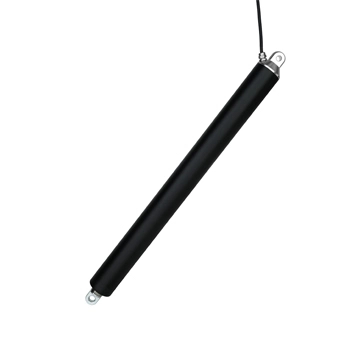With the advancement of technology, robots are becoming an integral part of various industries, serving as assistants in healthcare, manufacturing, and even daily domestic tasks. These robots are designed to perform intricate motions and tasks with precision and accuracy. Behind the smooth movements lie miniature motors, particularly the Micro Linear Servo, which plays a pivotal role in enabling dynamic movements in robot joints. In this article, we will explore the significance of Micro Linear Servos and their impact on the functionality of robots.
Understanding Micro Linear Servos
Micro Linear Servo, also known as miniature linear actuators or micro linear motors, are compact devices that provide linear motion to various mechanisms. These servos are designed to convert electrical energy into mechanical motion by utilizing electro-mechanical principles. Micro Linear Servos are commonly used in robotics to actuate joints, enabling precise and controlled movements.
The Advantages of Micro Linear Servos
Micro Linear Servos offer several advantages that make them ideal for robot joints. Firstly, their compact size allows them to be integrated seamlessly into the confined spaces of robotic structures. This feature is crucial, as it helps maintain the overall small dimensions of the robot while providing desired motions. Additionally, Micro Linear Servos exhibit excellent positional accuracy and repeatability, ensuring the robot can perform intricate tasks with precision. These servos also offer high torque, enabling the robot to exert a significant amount of force when required.
Applications of Micro Linear Servos in Robot Joints
The integration of Micro Linear Servo in robot joints opens up a myriad of possibilities for dynamic movements. In healthcare, these servos are used to power prosthetic limbs, allowing users to simulate natural movements. The precise control offered by Micro Linear Servos enables users to have a more functional and intuitive experience with their prosthetics. In industrial automation, Micro Linear Servos are utilized in robotic arms to perform delicate and complex tasks, such as assembling intricate electronic components. The high torque capabilities of these servos ensure efficient and accurate operations.
Future Developments and Conclusion
As technology continues to evolve, it is expected that Micro Linear Servos will undergo further advancements. Researchers are constantly striving to enhance their capabilities, such as improving positional accuracy and increasing torque output. These developments will allow robots to perform even more intricate tasks with higher precision and efficiency.
In conclusion, the role of Micro Linear Servos in robot joints cannot be overstated. These compact devices enable dynamic and precise movements, making them crucial components in the functionality of robots. Whether in healthcare, manufacturing, or other industries, Micro Linear Servos contribute significantly to the advancement of robotics. As technology progresses, we can expect further developments in Micro Linear Servos, leading to more sophisticated and capable robots that can enhance our lives in countless ways.
 DDTG-16 Micro Tubular Linear Actuator
DDTG-16 Micro Tubular Linear Actuator
 DDTG-28 Micro Tubular Linear Actuator
DDTG-28 Micro Tubular Linear Actuator
 DDTG-38 Micro Tubular Linear Actuator
DDTG-38 Micro Tubular Linear Actuator












